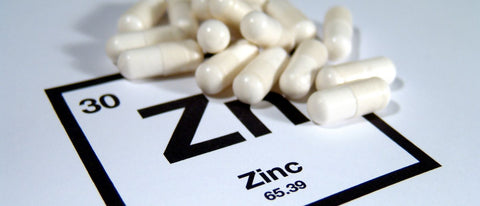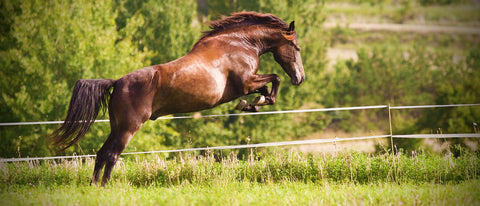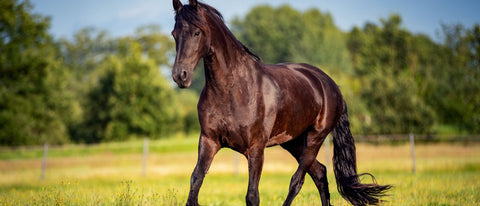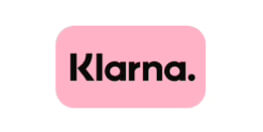
Florian ist aufgewachsen auf einem Bauernhof. Umgeben von Pferden, entdeckte er früh seine Faszination für diese majestätischen Tiere. Inspiriert von seiner reitbegeisterten Mutter, entwickelte er das Nahrungsergänzungmittel - Pferdegold. Seine tiefe Verbundenheit zur Natur und die leidenschaftliche Hingabe zu Pferden trieben ihn an, sein Unternehmen zu gründen.
Did you know that zinc is a fundamental building block for your horse's health? Many horse owners are unaware of the importance of this small and, at first glance, perhaps inconspicuous mineral.
Zinc plays a crucial role in almost all aspects of your horse's health and well-being.
From strengthening the immune system to promoting healthy skin and strong hooves to supporting metabolism, the trace element zinc is a true all-rounder for horses.
In this article, we highlight the importance of zinc for horses and explain why it is essential for your beloved four-legged friend's daily diet.

Why is zinc so important for horses?
Zinc is far more than just a simple mineral for horses. It is a crucial nutritional element that supports basic functions in your horse's body.
Zinc contributes to strengthening the immune system and plays an important role in skin and hoof health. As a component of numerous enzymes, zinc influences metabolism and cell regeneration in horses.
Without an adequate supply of this essential trace element, your horse's overall health and performance can be impaired.
Therefore, it is important to pay special attention to zinc supply in order to promote the vitality and well-being of your horse.
How the element can influence growth
Zinc is essential for the growth and development of horses. As a key component in over 200 enzymes, it supports protein and carbohydrate metabolism at the cellular level.
An optimal zinc supply not only promotes growth but also the quality of hooves, skin and coat.
Zinc plays a central role in the regeneration of skin and mucous membrane cells and is an important factor for the fertility of horses.
It influences the reproductive capacity of both mares and stallions and contributes to the healthy development of foals.

Perfect for your horse: Pferdegold® supplementary feed!
These specially developed supplements support your horse's diet and provide it with natural nutrients. Made in Germany, grain-free and drug-free, they come with a 30-day money-back guarantee.
Try it now!How zinc can strengthen your horse's immune system
Zinc is an important element for strengthening the immune system in horses. It not only supports the body's own regeneration but also the development of mucous membranes, which represent the first line of defense against pathogens.
Furthermore, zinc plays a key role in the activation and regeneration of immune cells , significantly improving the body's defenses against bacteria, viruses, and other pathogens . Zinc is also known to promote the production of antibodies , which enables a more efficient immune response and can contribute to the prevention of infectious diseases.
The role of the trace element in the metabolism of horses
Zinc has a far-reaching influence on the metabolism of horses. It plays an important role in various metabolic processes, particularly in the metabolism of fats and carbohydrates.
Zinc is also essential for skin metabolism and can effectively support wound healing .
In addition, it promotes the regenerative capacity of liver cells and is involved in central metabolic processes such as sugar, fat and protein metabolism .
Its comprehensive biological functions in almost all body tissues make it an indispensable component for a horse's overall metabolism.
Zinc for horses: the key to sharp eyesight?
The importance of zinc for the eyesight of horses is an exciting area in which research is still being conducted.
Zinc is essential for the metabolism of vitamin A, also known as the " vision vitamin ," suggesting that it may play an important role in vision .
Vitamin A is crucial for retinal health and supports the function of visual pigments, which are essential for vision in low light.
Zinc could therefore indirectly contribute to the maintenance and optimization of vision . Furthermore, it is possible that zinc plays a role in the prevention of certain eye diseases and can contribute to the overall eye health of horses.

How much zinc does your horse need daily?
A horse's daily zinc requirement depends on various factors such as age, weight, activity level and general health .
In general, adult, average-weight horses require about 400 to 500 milligrams of zinc per day. Pregnant or lactating mares and growing foals may require higher amounts.
It is important to maintain balance in the feed ration, as an over- or undersupply of zinc can cause problems.
A balanced diet that includes high-quality hay, grass, and supplements if necessary can help meet your horse's zinc needs.
Zinc in horse nutrition: all amounts at a glance
As we have already learned, zinc plays a crucial role in the health of horses.
The correct amount of this essential trace element in the diet is therefore crucial to avoid deficiency symptoms.
But how much zinc does a horse actually absorb through its food?
Let's look at an example: An average horse weighing around 500 kilograms needs about 400 to 500 milligrams of zinc daily.
If this horse eats approximately 7 kilograms of hay and 2 kilograms of oats daily, it will receive approximately 200 to 300 milligrams of zinc from the hay and another 60 to 80 milligrams from the oats.
This shows that the natural zinc content in hay and oats may not be sufficient to cover all requirements, especially in cases of increased demand such as in pregnant mares or high-performance sport horses.
In such cases, supplementation may be necessary to fully meet zinc requirements.

Pferdegold® supplementary feed!
Pferdegold is a small family business from Bavaria with a big dream: to produce the best horse feed. We see ourselves as a family of equestrians who want to provide your horse with the ideal nutrition. 100% natural and perfectly tailored to your horse's needs.
Try it now!When does the zinc requirement increase in horses?
The zinc requirement in horses may increase under certain circumstances, making it necessary to adjust feeding .
Especially during periods of intensive growth , such as in foals or young horses, the need for zinc is increased, as it plays a crucial role in the development of bones and tissue.
Pregnant or lactating mares also need more zinc to support the healthy development of the foal and to strengthen their own bodies.
Horses that are trained intensively or are under stress , such as competition horses, also have a higher zinc requirement, as zinc is essential for regeneration and the immune system .
Even in horses experiencing certain health problems such as skin diseases or wound healing processes , increased zinc intake can be beneficial.
It is therefore important to adjust the zinc content in the feed ration accordingly to maintain the horse's well-being and performance .
Zinc deficiency in horses: These are the symptoms you should look out for
Zinc deficiency in horses can lead to a number of health problems and should not be underestimated.
It is important to know the signs of a zinc deficiency in order to intervene in time and adjust your horse's diet accordingly.
-
Skin and coat problems: A common symptom of zinc deficiency in horses is poor skin and coat condition. You may notice that your horse's coat looks dull and brittle, or that excessive hair loss is occurring. Skin problems such as eczema, dandruff, or itching can also indicate a zinc deficiency.
-
Hoof problems: Zinc is crucial for hoof health. A horse with a zinc deficiency can experience symptoms such as brittle, cracked, or slow-developing hooves.
Weak hoof structures and an increased susceptibility to hoof diseases such as thrush can also be due to a zinc deficiency.
-
Weak immune system: Another sign of zinc deficiency can be an increased susceptibility to infections. Horses with zinc deficiency are often more susceptible to colds, skin infections, and other diseases because zinc plays a key role in the immune system.
-
Digestive problems: Zinc deficiency can also affect the digestive system. Symptoms such as diarrhea or loose stools can occur. These digestive disorders can, in turn, impair the absorption of other important nutrients , thus further worsening your horse's overall condition.
- Reproductive problems: In breeding horses, zinc deficiency can affect fertility. Both mares and stallions can exhibit symptoms such as reduced fertility or reproductive problems due to zinc and selenium deficiencies.

If zinc deficiency is suspected in your horse, it is advisable to consult a veterinarian and, if necessary, adjust the feed to improve zinc supply.
Stress and poor hay: Two factors that can lead to zinc deficiency
Stress and the quality of the hay are two important factors that can influence zinc levels in horses.
Stress, whether from training, competition or environmental changes, can increase a horse's zinc requirements, as zinc plays an important role in stress management and the immune system.
Poor-quality hay, which is poor in nutrients, doesn't provide enough zinc, which can lead to a deficiency. Hay from over-harvested or nutrient-poor soils, in particular, can contain significantly less zinc.
The combination of high stress and poor hay quality is therefore a risk factor for zinc deficiency in horses.
Overdose: risk or a myth?
While zinc is an essential trace element, an overdose can lead to health problems, also known as zinc poisoning.
Symptoms of a zinc overdose in horses include digestive disorders, lethargy and changes in blood count.
In the long term, excessive zinc intake can disrupt the balance of other minerals and lead to metabolic problems.
However, it is important to note that true zinc overdoses in horses are rare and usually only occur when zinc is administered in very high doses over a long period of time.
A balanced diet and adherence to the recommended zinc intake minimize the risk of zinc overdose.
Why zinc levels in soils continue to decline
The decline in zinc content in soils is a growing problem that affects the quality of horse nutrition.
Intensive agricultural practices , such as the frequent cultivation of monocultures and the excessive use of fertilizers, have contributed to the leaching of essential minerals such as zinc from soils. Pollution and erosion also contribute to the decline in natural zinc levels in soils.
This has a direct impact on the plants that grow on these soils and therefore also on the quality of hay and other forage plants for horses .
A decreasing zinc concentration in feed can lead to a higher risk of zinc deficiency in horses in the long term.
Conclusion
Zinc is a true all-rounder in horse nutrition, and its importance should not be underestimated. A deficiency or overdose can have serious consequences, so it's crucial to find the right balance.
It's crucial to know your horse's zinc needs and meet them, especially during periods of increased demand. As with many things in life, zinc is all about finding the right balance.
With care and the necessary knowledge, you can ensure that your horse receives all the necessary nutrients for its well-being and performance.
FAQ
Where is there a lot of zinc for horses?
In the diet of horses, zinc plays a crucial role for health and well-being.
It is important to know which feeds are rich in zinc to ensure that your horse is adequately supplied with this important trace element.
A balanced diet that includes zinc-rich feed can help meet your horse's zinc needs.
Table with feed and its zinc content:
| Animal feed | Estimated zinc content (mg/kg) |
| Oats | 40 - 50 |
| barley | 30 - 35 |
| corn | 20 - 30 |
| Soybean flour | 40 - 60 |
| alfalfa | 15 - 25 |
| Pasture grass | 20 - 30 |
| Hay (depending on quality) | 15 - 40 |
| linseed | 50 - 70 |
Please note that these values are approximate and may vary depending on soil and growing conditions.
For an accurate determination of the zinc content in specific feeds, it is advisable to refer to the manufacturer's information or laboratory tests.
What inhibits zinc absorption in horses?
Zinc absorption in horses can be inhibited by various factors.
High amounts of calcium, phosphorus and iron in the diet can compete with zinc for absorption, reducing its availability.
Certain feed components such as phytates, which are found in cereals and legumes, can also impair zinc absorption by forming insoluble complexes with zinc.
It is therefore important to select the feed carefully and, if necessary, supplement it with a mineral feed to ensure optimal zinc absorption.
Where are the zinc stores in the horse’s body
The zinc stores in the horse's body are mainly found in bones, liver, kidneys, muscles, coat and, to a lesser extent, in the blood.
Zinc is an essential component of many enzymes and plays a crucial role in numerous metabolic processes.
Zinc is mainly stored in the liver and bones and released to other parts of the body as needed to ensure a continuous supply.
Since the body does not store zinc, a regular intake of this important mineral through diet is crucial.
IMPORTANT:
Pferdegold is not a substitute for veterinary diagnosis or treatment . The information contained in this article is for general informational purposes only and is intended to help improve your horse's well-being.
Pferdegold products do not treat or cure diseases , but rather support your horse in correcting nutritional deficiencies through targeted nutrient intake. However, they are not a substitute for professional advice from a veterinarian or specialist.
If your horse has any health problems , we strongly recommend consulting a veterinarian . Pferdegold assumes no liability for decisions made based on the information provided here.
Learn more about horse health and read the next guides!
- Metabolic diseases in horses : causes and tips
- Icelandic horses » All information about their appearance, character & more!
- Laminitis in horses : tips for prevention and treatment
- Feeding horses optimally and naturally » That's what matters!
- Muscle building in horses : nutrition, exercises & tips
-
Cushing's syndrome in horses: tips on nutrition and care
















